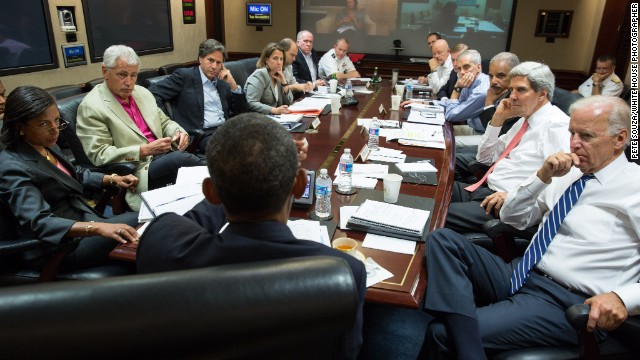The fleecing of Americans at the hands of government employees file is getting thicker. What say you after you read the result of this investigation? Anyone else out there reading this have a matter to be investigated?
Fuel fraud: Government employees steal millions from taxpayers at the pump
As a federal employee at Arlington National Cemetery, Bobby Bennett Harris was authorized two fuel cards to maintain vehicles assigned to the nation’s most famous burial site.
But he got caught using those cards to fill up his personal SUV. What tripped him up?
One of the cards that paid for gasoline was assigned to an all-electric vehicle. Oops.
“Yes, that was an obvious sign,” Eric Radwick, special agent for the General Services Administration, deadpanned in an interview with Watchdog.org.
In April, Harris agreed to a plea deal with federal prosecutors in Virginia for theft of government property — two years of supervised probation, nine days of confinement and a $5,000 fine and restitution for the $5,354 he acknowledged stealing by using the gas cards.
Harris’ case may be noteworthy for his blunder, but, unfortunately, it’s hardly unusual.
The Office of the Inspector General at GSA has closed out 260 fleet card cases and recovered more than $2.4 million in federal taxpayer money between 2010 and 2014, but specialists in how to crack down on fraud say the real figure is probably much higher.
“It’s difficult to prove,” Allan Bachman, education manager at the Association of Certified Fraud Examiners, told Watchdog.org. “Unless you look at every little charge and do mileage estimates on every vehicle and how many miles per gallon they get and how many miles per gallon were actually expended, then you’re in deep weeds.”
“I don’t think we can put a definitive number on how bad the problem is,” said Radwick, a member of the Inspector General’s team for 13 years, who said he’s seen the number of fuel fraud cases increase dramatically during that time.
A review of GSA cases by Watchdog.org of government employees accused of misusing fleet cards showed 10 guilty pleas, one military discharge and one arrest in just the past 11 months.
The thefts were as low as $976 and as high as $24,000, involving a range of federal employees that included a VA hospital volunteer, a U.S. Navy recruiter, an Amtrak employee, a contract driver for the Department of Homeland Security and a former inspector with District of Columbia Fire and Emergency Services.
But one fuel fraud case GSA uncovered in 2011 was more than 10 times bigger. That’s when a then-married couple had to pay restitution of nearly $300,000 for using multiple fleet credit cards to fill up non-government vehicles in Hampton, Virginia.
The cards were assigned to Colleen White, who worked at the motor pool at Fort Monroe military installation before it was decommissioned. Lanaire White was sentenced to 84 months of incarceration and three years of supervised release after being convicted in a jury trial of conspiracy, wire fraud, theft and firearms violations.
“Everyone’s got one or two gas card cases in their portfolio,” said Radwick of his IG staff of about 65 agents, including 10 in the Washington, D.C., office. “It’s very steady.”
But it can be hard to crack down on fuel fraud because of the sheer number of cards the federal government has distributed — some 590,000.
“The more cards that are out there, the more opportunities there are to take advantage of those cards,” Bachman said in a phone interview from the ACFE headquarters in Austin, Texas.
The government fleet is huge — more than 650,000 vehicles around the world, driving more than 5 billion miles a year, consuming $400 million in gas and costing $4 billion to maintain. The fleet includes some military vehicles that are leased through the GSA.
Is the job just too big for one agency to track?
“Just by the number of government employees and the vast mission of the federal government, there’s going to be large amounts of everything — computers, cars, what have you,” Radwick said. “With the design of the program, hopefully agencies aren’t paying for cars they don’t need because it’s coming out of an agency’s line-item budget … I know the vehicles that we have, we use ’em all.”
Bachman, who believes the problem is not worse in the federal government than in the private sector, said most companies and agencies use gas card systems because they’re just easier.
“If the purchasing department had to be responsible for handing out cash every time somebody had to get gas, or even taking the vehicle themselves to fill it up or to keep a fuel farm as many places do, that becomes really burdensome,” Bachman said. “It’s much cheaper just to say, ‘Here’s your credit card for gas, it has a limit, say, of $75 a transaction and you can’t use more than four times a month.’ If those kinds of controls are built it, it’s a tremendous advantage.”
The key is to make sure controls are put in place and enforced.
“We’re looking at a lot of data,” Bachman said. “The best thing you can do is sampling — not necessarily watching every transaction, but picking transactions and saying, do these transactions really make sense?”
Radwick has heard a slew of excuses from federal employees who misuse government-issued gas cards. One of the most common? That they simply mistook the government card for their personal credit card.
But GSA recently changed the gas cards to make them more distinctive on the front and back:

“Once you put (the card) in the pump it requires you to do stuff that normal credit cards don’t, so that excuse goes out the window,” Radwick said.
“People are creatures of habit,” Bachman said. “An employee who is using the card legitimately, you can pretty much track when that person is going to use their fuel card. So when they use the card outside of that pattern, that raises a potential red flag.”
Online tools and data mining help GSA inspectors track down more cheaters and the agency has made a concerted effort to publicize convictions and guilty pleas.
“When you do catch someone, if you make it very public that you’ve caught someone abusing the procurement card, that they have been dismissed and, depending on the magnitude, possibly even looking into civil or criminal prosecution, that sends a message as well,” Bachman said. “That’s a big deterrent.”
So why do people do it?
“They don’t think they’re going to get caught,” Radwick said. “And a lot of times when they do get caught it’s ‘Yeah, I knew this was coming’ … We very rarely catch someone on their first, second or third time doing it. They’ve been doing it for a little while and they’ve gotten complacent and they think, nobody’s watching this, nobody’s paying attention.”
Radwick said he expected the drop in gasoline prices in the past 10 months would encourage cheaters to back off. But despite the risk, that hasn’t happened.
Despite more arrests, more convictions and more efficient technology in the hands of GSA agents, the problem persists.
“Are we getting more cases? Yes we are,” Radwick said. “Is that because it’s getting worse or are we getting better? I really don’t know.”
“It’s hard to tell if we’re chipping away at it and making real inroads or not,” Bachman said.



